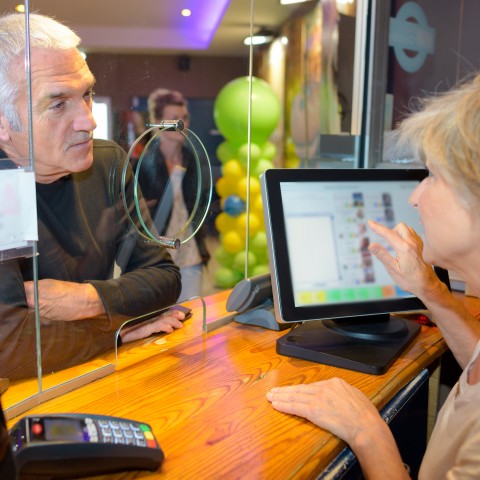A tourist in Rio de Janeiro can ignore Brazil’s etiquette. A devoted learner can’t. In fact, understanding Brazil customs and etiquette—and some of their roots—is a solid path to richer contact with the language.
Because the etiquette of Brazil is fairly different from Portuguese etiquette, learning cultural etiquette in Brazil is a great opportunity to understand Brazilian people. After all, meeting new people and hearing different perspectives contributes to a richer life experience!
[The importance of family, and many more customs, are an open door to Brazilian culture.]
Traveling and getting to know different realities often reveals unthinkable life conditions and habits. Even though the cultures, concerns, and consumption habits worldwide tend to assume a growingly homogenic behavior in comparison to decades ago, there are so many countries in the world and still so many different people.
Getting to know new people and cultures always leads to surprises, both good and bad. That’s why we’ll present the do’s and don’ts of Brazilian etiquette and customs, also giving you a taste of each behavior’s roots and why things are done that way.

Table of Contents
- Dining Etiquette in Brazil
- Sightseeing Etiquette
- Brazil Greetings Etiquette
- Visiting a House
- Public Transportation
- Business Etiquette in Brazil
- Celebrations Etiquette
- Conclusion
1. Dining Etiquette in Brazil
Do: Take Your Time Eating
The first of our Brazil etiquette tips is to respect the meal. If you’re not eating fast food and aren’t late to an appointment, take your time.
Brazilians don’t usually have a solid meal structure like Italians do, with a full course, seven-dish dinner. But they’ll eat calmly, even during lunchtime on work days.
While there are exceptions, it’s generally best to eat and leave room for the coffee afterwards—and participate in the small talk after the meal.
Do: Embrace Coffee
Coffee is at the core of Brazilian culture. After the scourge of slavery, it was coffee production and exports that boosted the Brazilian economy. Across the decades, the commodity’s prices and planting cycle have created obstacles to a sustainable production of wealth.
In spite of that, the country is still the world’s top producer of coffee—with more than three times the production of the famous Colombian coffee in 2019. The world’s biggest coffee cooperative is located in Guaxupé, in the state of Minas Gerais.
So, drinking coffee is a widespread habit in Brazil, especially during breakfast and after other meals, both during the workweek and weekend.
Brazilians usually drink sweetened coffee. While this isn’t part of the rigid Brazil table manners and etiquette, it is a habit. If you don’t like your coffee sweetened and you’re in a restaurant, your cup of coffee will probably come from the kitchen unsweetened. But in a workspace, it’s quite possible that the sugar will have been added already. Ask the waiter or the person who prepared the beverage about this detail just to be sure.
In Brazil, it’s not very common to ask for coffee with cream and other ingredients. Black Coffee is king, with Coffee with Milk and Pingado (basically a cup of milk with a splash of coffee) being distant seconds.
If you’re not into coffee, no problem. Just hang around and talk a little until your mates finish drinking this dark elixir.
[This dark elixir awaits for you after every meal]
Don’t: Pay if You’re Invited
If you’re invited to eat, don’t dare to pay! This Brazilian dining etiquette rule is more frequent in familial contexts or among older people; younger people tend to earn less and split the bill without much care for etiquette.
Don’t: Sit at the Head of the Table
This is one of the basic Brazil dining etiquette rules. It’s not exclusively Brazilian, but should be kept in mind while in the country.
The head of the table is “reserved” for the house owner or chief of family, so you’re not supposed to sit there. Only proceed to take that place if you’re invited to do so.
Also, there’s the following saying: “The seater at the head of the table pays the bill.” So, be prepared for the consequences!
Bonus: Brazilian Tipping Etiquette
Tipping in Brazil is always optional. Still, the tradition is to tip the waiter ten percent of the meal’s value. Most restaurants bill the client with both the “rough” value of the meal and with the tip added—clearly showing the different values so that you can make the decision. In some places, the employee will ask if you want to pay the ten percent just to be polite; if you say no, this may be considered rude.
2. Sightseeing Etiquette
Do: Keep it Basic and Watch Out While in Public
This is the saddest of all our Brazilian etiquette tips and is very important. It’s a beautiful country with abysmal violence rates. The announcement of 30,864 homicides in the first seven months of 2019 was considered an achievement compared to the 39,527 homicides registered for the same period the year before.
That’s how absurd the situation is—and theft crimes are even more common.
So, it’s prudent to avoid flashy clothes and accessories if wandering through public spaces, such as a crowded street or the beach. The catch is: there are items that foreigners don’t even understand to be flashy—but are. Some examples include:
- A metallic watch
- A smartwatch
- Luggage
- A cool jacket
- Silver/gold jewelry
- Fancy sunglasses
- Fine shoes
- A cell phone
This means that the dress code for sightseeing should be urban and basic. If you’re riding in a car, you’re safer and thus can be a bit more flexible with styling. If you’re going to the beach, carry just a few items (since you’ll have to watch them all the time) and pick flip-flops instead of shoes.
Cell phones are the most wanted item for criminals; they’re easy to take and profitable in the black market. Avoid making phone calls or reading text messages for longer periods of time while in the street. You can take pictures and talk once in a while, but look around before and be discreet. You can also enter a shop or restaurant to do so.
Do: Take it Easy with Schedules
Some tourist attractions, appointments, or meetings can take longer than expected. Some nations and cultures recommend punctuality. Britons are a proverbial reference in this aspect. In contrast, Brazil customs and etiquette tend to relativize this asset.
People can be late for meetings and appointments. Being five, ten, or even fifteen minutes late is generally not a problem in informal contexts. If you’re thirty minutes late, send a message and your friends will usually understand. Of course, if you’re late for the cinema screening, forget about that session.
But don’t mix things up: Brazil dating etiquette recommends that you don’t leave the person hanging for half an hour. This is especially true if you’re going to meet in a public space, since it can be dangerous to hang out on an empty street, building, etc.
Likewise, delays are generally not part of business etiquette in Brazil. Being a little bit late may be okay for things like meeting a coworker for lunch, but showing up late for negotiations, tests, workshops, conferences, or job interviews is out of line.
3. Brazil Greetings Etiquette
Do: Kiss
A little kiss on the cheek is especially normal in man-woman and woman-woman greetings. The etiquette for some states (Rio de Janeiro) is to kiss both cheeks, while others (São Paulo) recommend one kiss. But you can also find state etiquette that recommends three kisses (Minas Gerais).
To resolve this controversy, the Brazilian Ministry of Tourism has developed a very useful Mapa do beijinho (literally: “Little kiss map”), showing how many kisses are the norm for each state. That one embarrassment of meeting someone is now finally behind you!
Another great strategy is to wait and see how people are greeting one another. If the kiss is too intrusive and intimate in that context, a handshake is enough!
Do: Shake Hands
In Brazilian social etiquette, shaking hands is the most common greeting for formal occasions. In informal situations, it’s normally employed between people of the same sex.
Don’t: Freak Out When Hugged
While the hug can send a bad message and even sexual overtones, it’s relatively normal in Brazil, even among people who aren’t that intimate.
However, there’s a subtle way to differentiate between intimate hugs between friends and greeting acquaintances with a hug.
A warm hug demands contact with the torso and lacing your arms around someone else. A “half-hug” will only demand lacing one arm around someone and making contact with part of the torso (or only the shoulder).
You can make the “half-hug” even more distant by converting it to a handshake and a tap on the shoulder or arm of the person you’re greeting. This is ideal for business and formal environments.
4. Visiting a House
Do: Greet Everyone
In Brazil, guest etiquette demands that you greet everyone. You may think it’s redundant to do this in a room with lots of people, but a person may become offended if you don’t greet them warmly.
Don’t: Stay in Your Safe Zone
If they’ve called you to be a guest in their house, it means they’re sharing their intimacy with you. So, you can loosen up a little bit.
Make sure you observe and respect the family code of the house, but don’t be shy to talk, share some of your ideas, or take part in family activities like watching TV—with a family that was completely strange to you five minutes ago.
A barbecue is the perfect context to exercise this piece of cultural etiquette in Brazil. Meeting a new family, getting to know them while eating good food, and enjoying the afternoon together, is a great experience.
People will be interested in knowing the guest (you) as well. If you observe a lot and act polite, you’ll probably do fine. When in Brazil, do as the Brazilians do.
Don’t: Flush the Toilet Paper
You know what they say: Brazil bathroom etiquette is the best Brazil etiquette—not. Indeed, this tip of Brazil bathroom etiquette is a little awkward, but very important.
Most Brazilians place a little trash can beside the toilet in their bathrooms. You may feel confused about it or even find yourself attracted to its mystery (don’t look inside!).
Instead of flushing used toilet paper, it’s common to dump it into this little trash can. The trash can in the bathroom is disgusting, but the sewer system in Brazil is worse. The condition of the pipes is often not good and the water pressure allows only a little help to flush.
So, get used to the can, because flushing the paper can lead to bad—and even more disgusting—episodes.
[Excuse me, my friend: where is the little trash can?]
5. Public Transportation
Do: Be Active to Call Your Bus
Brazilian public transportation emulates the law of the jungle in many aspects. You’ll struggle to find a seat. People are not very polite. Often, you’ve got to camouflage and find an attitude of balance between dismissing ambulant vendors and not being a jerk.
Well, you have to be inside the bus before managing these issues.
Many countries have only tightly scheduled rides, and people don’t have to signal to the driver to board the bus. This is not the case in Brazil.
Picture yourself at the bus stop. As soon as you identify the bus you want to ride:
- Raise your arm in the air.
- Bend it a little toward the street.
- Sustain your arm until you’re completely sure the driver has seen you.
- Now, you can get in.
[After the procedure, you’re free to hop in and find a seat…]
Do: Mind the Importance of the Sun
When you’re picking a seat on the bus, figure out which side of the bus receives the most sunlight. Solemnly avoid it and take a seat on the other side.
Brazil is a hot country, and riding the bus under the sun is one of the worst experiences of the local public transportation, especially if the bus gets filled with people.
Don’t: Rely on the Taxi Driver
I’m sorry if you’re a taxi driver or know someone who is. If you ride a taxi without knowing the directions to your destination, you may be inviting someone to the depths of your wallet—it’s possible that you’re being scammed.
Take a few minutes to understand the course of the ride before getting into the cab. Get a general notion of the main avenues, so you can notify the driver if you notice something strange.
The rise of Uber, and other companies that navigate with software that shows the course, have made this process more transparent. But there’s always some smart guy out there, eager to get in touch with your money.
6. Business Etiquette in Brazil
Do: Dress Accordingly
Brazil business dress etiquette is paramount in the working place. The clothes are not much different from those in other countries, but in Brazil, the presentation is really important.
Generally, look sharp and clean. If you’re a man, shave or take care of your beard. Brush your teeth, take a bath. And keep it classic:
Man: Shirt, tie, blazer or suit. Leather shoes. Wear a classy watch, if you want.
Woman: Shirt and social pants or skirt, woman’s blazer. High-heel shoes. Some basic jewelry may be suitable.
Sure, the dress code isn’t like that in every workplace. Dress conservatively, at least until you understand the dress code better. This is the basic business etiquette in Brazil (and everywhere else), and it allows you to blend into the team, stylewise.
Always remember: clean looks, fresh clothes, and perhaps a little cologne are welcome everywhere.
Don’t: Criticize Co-workers
This is an important point of Brazil business meeting etiquette. You can sometimes share your personal impressions during professional meetings. However, criticizing ex-co-workers, your old boss, or people in general, is often understood as a strong negative point for you.
[Don’t share the grudge you hold against that terrible boss.]
Do: Accept Help from Locals
One of Brazil’s business downsides is the scandalous number of bizarre regulations. From business restrictions to very specific tax rules (often conflicting between state and federal spheres), doing business in Brazil isn’t easy. In fact, it’s easier to do business in Malawi than in Brazil.
Thus, here’s another important topic of business etiquette in Brazil: gather people you trust to help you in your business. Lawyers, accountants, and people that show useful abilities and regional know-how in your area are precious assets.
7. Celebrations Etiquette
Do: Casual and Clean
Be tidy if you’re going to a social event, especially a party. You don’t have to dress fancy, except if the ambience asks for it.
A person’s appearance is very important in celebrations. Shave your body hair and cut your nails. People love perfume or cologne, and you can always chew on mint gum. It’s not a matter of appearance over substance; it’s just that you care about the event and want to look your best.
Don’t: Be Shy
Shy people can suffer a lot with Brazil customs and etiquette. In social interactions, it’s extremely important to demonstrate enthusiasm and to interact with others. You don’t necessarily have to feel it, but it’s better to show it. Speaking louder, performing gestures, and employing physical contact are a few ways to do this.
If you’re not willing to pretend or to interact much, at least be funny or well-humored. Otherwise, chances are high that you’ll be considered rude or arrogant by the standards of cultural etiquette in Brazil.
Also, don’t feel offended if you’re interrupted by someone at a party or dinner. This is rude among many cultures, but in Brazil, interrupting someone is often a way of showing interest.
Do: Party Hard
People in Brazil really enjoy celebrations. Barbecues, big dinners, and parties are the most common examples.
One aspect of Brazil customs and etiquette in parties that feels strange to foreigners is the length of the celebration. People take a long time to prepare for parties at home. Then, they go somewhere to drink and “warm-up” (called, literally, esquenta) for the festivities. Finally, they get to the party and it lasts a long time.
Some countries have strong restrictions regarding the functioning hours for bars and nightclubs, but this isn’t the case in Brazil. You may not be stepping into a rave, but dinners and parties generally demand some resistance, and even patience, during their later hours.
Also, gatherings in Brazil can get extremely loud. If you compare the volume of noise in a Brazilian restaurant to what you’d experience eating out in some other country, it doesn’t even make sense. There’s often the sound of the background music and the talking above it. It’s something unpleasant to overcome, especially for foreigners.
Do: Act Solemnly at Funerals
Some cultures are less formal when it comes to funerals, incorporating meals and the sharing of stories involving the deceased, like during in-house receptions. This is not the Brazilian funeral etiquette.
Be quiet, greet, and send condolences. Wear black. Prayers may be part of the process. If you’re not religious, you can consider taking part merely to transmit support and comfort to people who were close to the deceased. They’ll surely appreciate you being mindful of these Brazilian funeral etiquette rules.
8. Conclusion
Cultural etiquette in Brazil is complex, but it’s a matter that can be learned through daily experience.
Still, this article compiles some of the most relevant tips for Brazilian etiquette for foreigners. In order to broaden your cultural knowledge, we highly recommend that you take part in PortuguesePod101.com lessons.
This modern online platform gathers the most useful Portuguese lessons and blends them evenly with informal and cultural knowledge in a way that’s extremely hard to find elsewhere.
Explore PortuguesePod101 and find both free and paid resources on-demand for your learning appetite and practical needs. Brazilian customs and etiquette may be a long way from home, but PortuguesePod101 is only one click away!
Before you go, let us know in the comments how Brazilian etiquette differs from (or is similar to) etiquette in your country. We look forward to hearing from you!






















 Table of Contents
Table of Contents



















 Table of Contents
Table of Contents






































